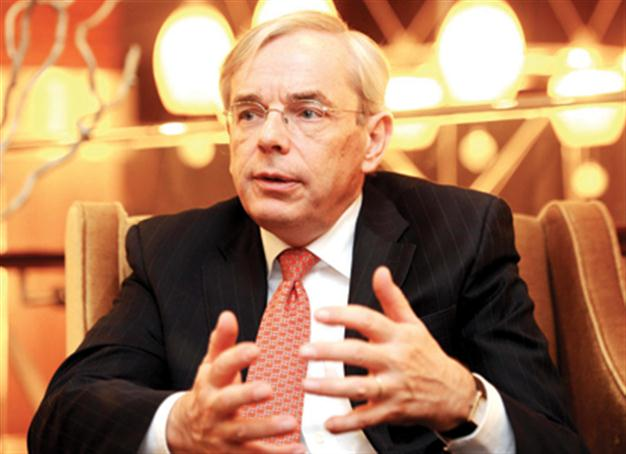Turkey better be ready for hard times, bank says
ANKARA – Hürriyet Daily News

Supporting small and medium companies, especialy the agribusiness firms at rural areas, is a priorty for the European Bank for Reconstruction and Development, according to chief executive Mirow. ‘We look at specific projects and their soundness,’ he says. DAILY NEWS photo, Selahattin SÖNMEZ
Although Turkey has enjoyed “very good years” in 2010-2011 in economic terms, the country needs to prepare for tougher times, the chief of the European Bank for Reconstruction and Development (EBRD) has said.
“You will be in a difficult situation in the coming months,” Thomas Mirow, president of the EBRD said in an interview with the Hürriyet Daily News on Nov. 14.
Mirow had talks with officials in the Turkish Parliament, EU Minister Egemen Bağış and Energy Minister Taner Yıldız this week to test the waters, not only in the economy, but also in the political sphere.
Evaluating Turkey’s economy, Mirow said the country has seen impressive growth, certainly being among the front runners globally in terms of growth.
“There are vulnerabilities attached to this, especially a relatively high current account deficit,” he said, adding that inflation, which is high as well and a controllable amount of volatility in terms of foreign exchange.
Big improvement
“If one looks at the country today and compares it to where Turkey was 10 or 15 years ago, it’s quite impressive,” he said.
EBRD started activities in Turkey 2.5 years ago. The bank started with very a modest pattern of investment on the scale of $1.5 million, but it grew very quickly, Mirow said, adding that they already invested more than $5 million in 2010.
In 2011, EBRD investment would come close to $1 billion, which they thought was a sustainable level, he said.
“That means two things: One, never ever has a country grown so quickly out of all the countries we are investing in. Secondly, Turkey, together with Ukraine, will rank as number two in terms of priorities of the EBRD doing business,” Mirow said.
Evaluating the signs of overheating in the Turkish economy and the bank’s projection on investments in Turkey, Mirow said of all the reduction of growth forecast was less due to overheating effects and more due to the expectation that Europe faces a difficult time.
“[This is] because Europe is so important for Turkey as an exports and imports partner,” he said.
When investing in Turkey, Mirow said the EBRD looks to diverse areas, like public infrastructure projects, big and small, including utilities and services in small municipalities. The EBRD eyes anything that relates to energy efficiency, reducing energy waste, investing into new power generation particularly in the renewable field, he added. The bank invests in small and medium enterprises, especially in remote areas including agribusiness companies, he said.
“We look at specific projects and their soundness. We continue to see very important and good opportunities for the bank to invest in Turkey,” Mirow said.
Nearly 50 percent of EBRD’s investments, around 450 million euros worth, are in the energy sector.
















